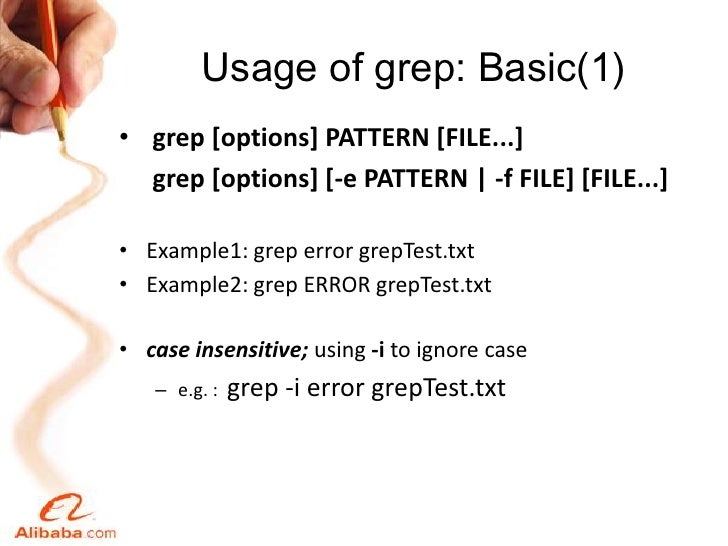

In egrep it's an operator that says '0 to many of the previous entity'. If you want * in regular expressions to act as a wildcard, you need to use. grep itself doesn't support wildcards on most platforms. However, in regular expressions, * is a modifier, meaning that it only applies to the character or group preceding it. In the console, * is part of a glob construct, and just acts as a wildcard (for instance ls *.log will list all files that end in. Execute the following command to use grep to search for every line that contains the word GNU: grep 'GNU' GPL-3. This means that if you pass grep a word to search for, it will print out every line in the file containing that word. The GREP command is a Linux/Unix command-line utility that can be used to search through files for specific text patterns. That input can be the standard input pipe, a specified file, or even an output of another previously executed program. * in a regular expression is not exactly the same as * in the console. In the most basic form, you use grep to match literal patterns within a text file. Lets go over some examples of practical usage of the grep command, having the previous sections in mind. The -only-matching (or -o for short) grep option prints only the matching part of a line. geeks1. * - grep 'abc.*def' myFile will match a string that contains abc followed by def with something optionally in between. grep -R Search directory Example : grep -iR geeks /home/geeks. For your more complex match, you need to use.

If you want to just match abc, you could just say grep 'abc' myFile.

* - the dot means any character ( within certain guidelines). Syntax: grep options pattern files In this example, grep looks for the text John inside. If you want to match anything, you need to say. This is incredibly powerful command with lots of options. *abc*/ matches a string containing ab and zero or more c's (because the second * is on the c the first is meaningless because there's nothing for it to repeat). The asterisk is just a repetition operator, but you need to tell it what you repeat.


 0 kommentar(er)
0 kommentar(er)
